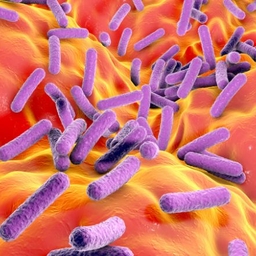Search the Newsroom
Filter By
News Type
Showing 1 - 10 of 44 results
CHOP hosts 7th Annual Immune Dysregulation Symposium
CHOP hosts the 7th Annual Immune Dysregulation Symposium on April 30 for clinicians and researchers who care for patients with complex, multi-organ immune diseases.
Q-and-A with Dr. Alexandra K. Medoro About the Congenital and Perinatal Infections Clinic
Dr. Alexandra Medoro shares how CHOP’s Congenital and Perinatal Infections Clinic supports infants and families through expert care, follow-up and education.
CHOP Study: The Impact of Receptor Agonists on Pediatric MASLD
CHOP research: GLP-1 RAs may be powerful treatment option for pediatric patients with metabolic dysfunction-associated steatotic liver disease and type 2 diabetes.
Children’s Hospital of Philadelphia Researchers Use a “Trojan Horse” Approach to Develop New Antimalarial Drugs
Understanding how the parasites operate gives important insight into drug development for needed novel therapies
Children’s Hospital of Philadelphia Researchers Find Rotavirus Vaccine is Safe for Use in NICU Babies
Risk of transmission of the rotavirus vaccine is extremely low and poses very minimal risk to NICU babies
Penn Medicine and Children’s Hospital of Philadelphia Create mRNA Vaccine to Prevent and Treat C. difficile
The vaccine is the first mRNA vaccine against C. difficile and would be the first vaccine in general to successfully ward off the bacterial infection.
COVID-19 Vaccine Reduces Long COVID in Children
Vaccination associated with moderate protection in large, diverse cohort.

A Day in the Life: Petra Molnar, PhD
As a research trainee in infectious diseases, Dr. Molnar studies metabolic regulators to develop promising antimalarial therapies. Follow a day in her life.

CHOP Researchers Show that IgA Fine Tunes the Body’s Interactions with Microbes
CHOP researchers have shown that IgA acts as a “tuner” that regulates the number of microbes the body sees every day, restraining a systemic immune response.
CHOP and Penn Researchers Find 1 in 5 Pregnant Women Lack Measles Antibodies
Since infants rely on antibodies passed from mother to baby during pregnancy, the findings suggest a need for alternative strategies for boosting infant immunity in the event of an outbreak.